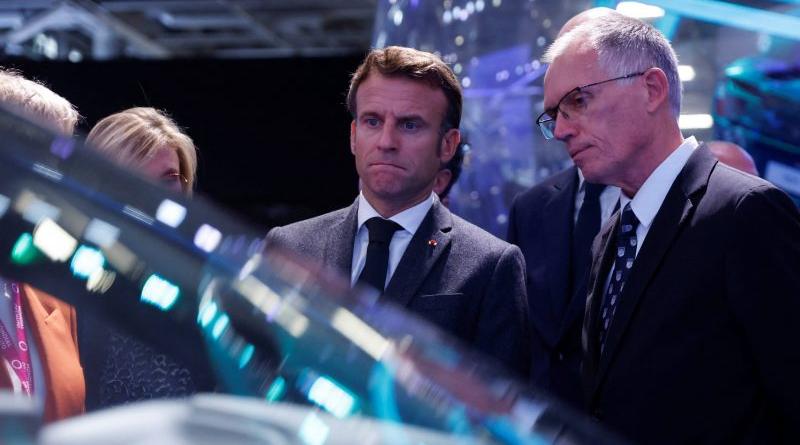Stellantis tests e-fuels on existing engines to decarbonise fleet

Carmaker Stellantis is testing synthetic e-fuels, which are made with renewable energy, on 28 types of its internal combustion engines, a step it said on Thursday (20 April) could help decarbonise its existing European fleet.
The announcement comes just weeks after the European Union opened a legal route in its phase-out of carbon dioxide-emitting cars from 2035 which would allow those models with combustion engines running on e-fuels to remain on sale.
The exemption, championed by Germany, was hailed by some as preserving technological freedom but viewed by others, flagging e-fuel’s low availability and high cost, as a dangerous loophole for potentially polluting combustion engines.
Stellantis, owner of brands including Fiat, Peugeot, Opel and Jeep, said in a statement it was testing everything from tailpipe emissions to engine power and oil dilution in Euro 6-standard vehicles made from 2014 and into 2029.
Solutions being tested could apply to up to 28 million Stellantis vehicles, with a potential reduction of CO2 emission in Europe of 400 million tons from 2025 to 2050, it added.
“The broad adoption of e-fuels would offer customers with existing internal combustion engine vehicles an easy and affordable option to decarbonise their vehicles.”
Stellantis reaffirmed it was committed to all new car sales in Europe being battery-electric by 2030.
CEO Carlos Tavares said last month that the e-fuels vote did not change the carmaker’s electrification strategy but showed that not everybody agreed with a “dogmatic approach”.
“By working to make sure our Stellantis engines are e-fuels friendly, we are aiming at giving our customers another tool in the fight against global warming and one that can have an almost immediate impact,” Tavares said.
“While we remain steadfast in executing our aggressive electrification strategy, we must also find smart alternatives to address the CO2 emissions for the 1.3 billion existing ICE cars,” he added, saying “the industry will have to demonstrate that this is carbon-neutral”.
The European Commission has until the autumn to come up with a proposal for how to ensure combustion engine vehicles produced from 2035 onwards only run on e-fuels, a process in which it is expected to involve industry representatives.
Chevron and Exxon Mobil said on Wednesday they were road testing renewable gasoline blends but that making them affordable would require government support.
cover photo: French President Emmanuel Macron looks at a car next to Carlos Tavares, Peugeot chairman and Stellantis chief executive, at the Mondial de l'Automobile, the Paris Motor Show, in Paris, France, 17 October 2022





